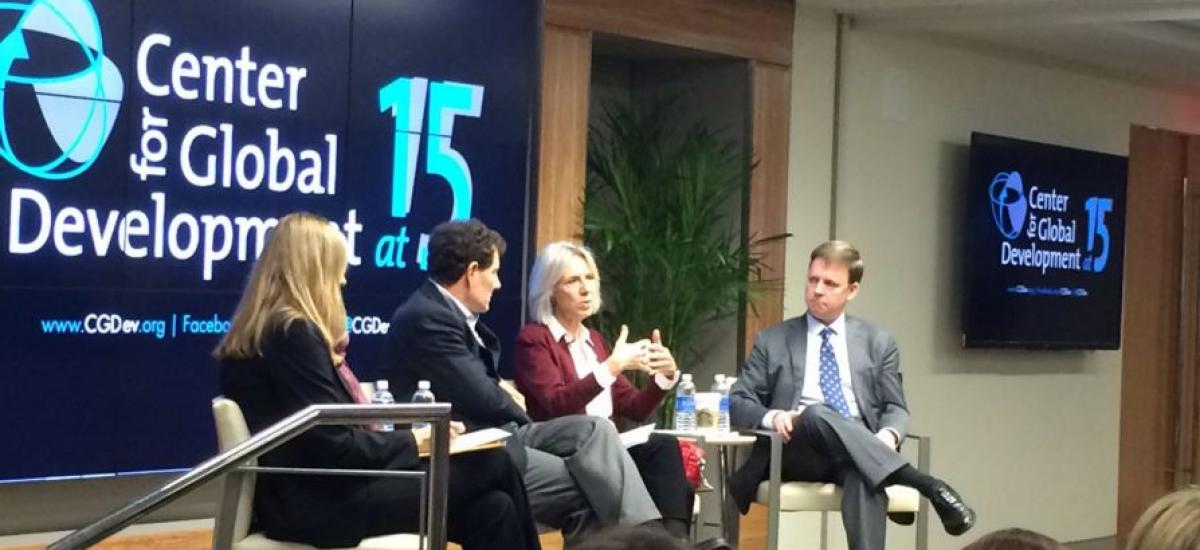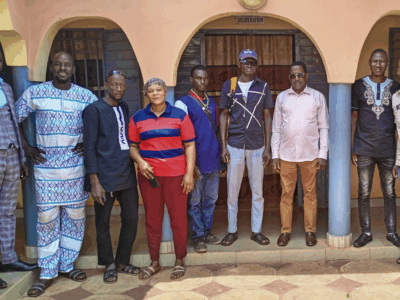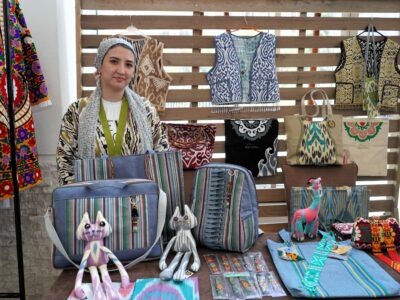
Pulitzer-prize winning New York Times columnist Nicholas Kristoff joined Unilever’s Tom Langan and CGD’s Mayra Buvinic for a lively and thoughtful discussion on Wednesday, February 24, at CGD’s Washington, D.C. offices. At the event entitled “The Private Sector and Gender Equality: Beyond Traditional Corporate Social Responsibility” participants weighed in on how the private sector can better harness its resources to improve the lives of women and girls around the world. They also considered how companies can go beyond traditional corporate social responsibility (CSR) programs to better integrate a gender lens into their value chains.
CSR: From PR Gesture to Core Business Practice
Kristoff kicked off the event by explaining that he first paid attention to CSR because of the scale it offered traditional development approaches to really make an impact. He commented that CSR has long been marginalized as a marketing gesture, though, luckily companies are integrating it into their core practices for reasons of branding, employee recruitment, and retention. Though CSR has had a rough start entering the mainstream of corporate best practices, Kristoff cited the examples of the American legal community and big pharmaceutical companies doing pro-bono work and CSR effectively. Accountability and data need to be brought to CSR for it to be more than boasting. Third-party evaluation would help in that regard, Kristoff opined.
Unilever Creates Economic Opportunities for Women as It Integrates Them into Its Value Chains
Unilever’s North America External Affairs head Tom Langan outlined how Uniliver moved from contending with CSR as a PR problem to seeing it as a business opportunity. With food, personal hygiene, and household products distributed in 190 countries, Uniliver integrates CSR across its value chains. Unilever strives to create economic opportunities for women to distribute its products to keep money within families and to further develop women’s skills.
CGD Fellow Explains How Savings Can Economically Empower Women
Mayra Buvinic, Co-Director of CGD’s Gender and Development Program, discussed how women can become economically empowered. She discussed the case of Chile and the IDB and how banks there had not previously disaggregated their data by gender. Once disaggregated, the data spoke to the fact that women, who are generally more risk-averse than men, want savings more than credit. They want secure, formal, and secret ways to save their money. Buvinic explained that financial services are not gender-neutral interventions and that such interventions should also work on the supply side to customize products to meet women’s needs.
Access videos of panelists’ comments on CGD’s website.
More Resources
- Read more about ACDI/VOCA’s work in gender and women’s empowerment
- Read more about ACDI/VOCA’s value chain work








